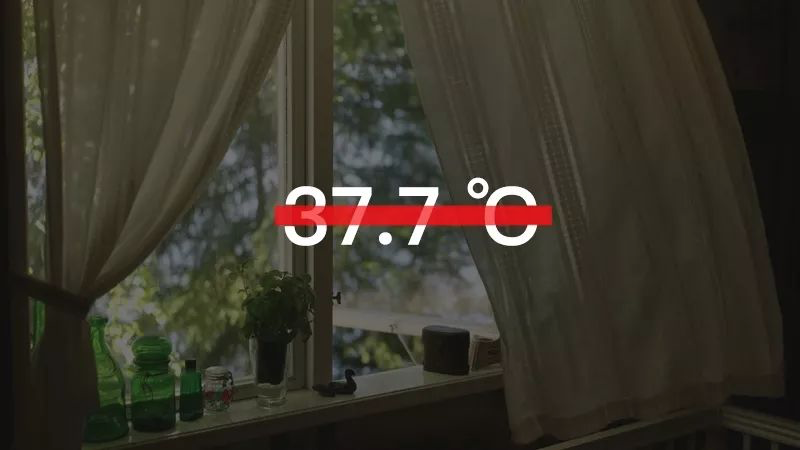“I just hope you can write an article that raises awareness, otherwise some people will sacrifice in vain“.
This sentence was spoken by Mr. Guohua, an infected person in Wuhan.
Mr. Guohua works in Wuhan and is one of the readers of Garage 42. On February 2nd, after I forwarded a friend’s real-time updates about the epidemic, I learned from his message that he was one of the infected people in this epidemic. What surprised me even more is that he has already recovered.
So I started to ask Mr. Guohua about the specific situation. What happened during the period from infection to recovery? How did he handle it during the infection period?
The following is Mr. Guohua’s account:
Before the closure of the South China Seafood Market, that is, at the beginning of the epidemic, I began to pay attention to the news, but I still could not escape the invasion of the virus.
During that period, I bought a box of N95 masks with 30 pieces altogether. From the day I got the mask, I started wearing it. However, due to limited number of masks, I changed the mask only once a week.
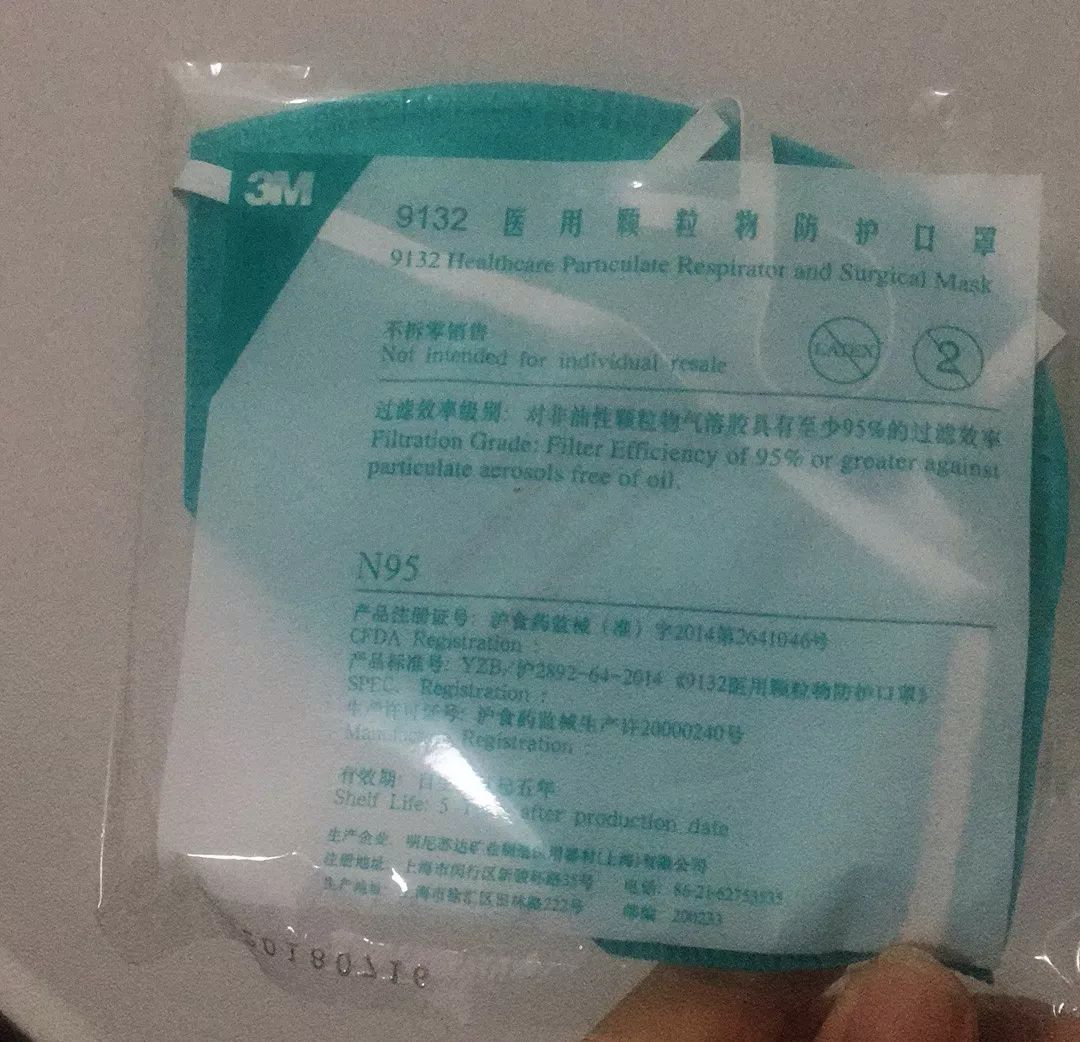
N95 mask that Mr. Guohua bought.
Between January 11 and 16, although I paid close attention, I was busy preparing for the company’s annual meeting performance. It was very hard during that time, with work to do and the program to complete, so I didn’t pay too much attention to it (the epidemic).
On January 18th, I began to feel dizzy from time to time. At that time, there were no other symptoms, no coughing or diarrhea. It may be because I was too tired, but the abnormal condition of my body started from this time. Now I will recount what happened afterwards.
Some employees in the company began to have low-grade fever and coughing
At the earliest, between January 1st and 11th, some people in our company had a low-grade fever and coughing. Later, on January 13th, he was diagnosed with viral pneumonia, and we did not know whether it was new coronavirus pneumonia, thinking that it was just viral pneumonia. That day, he quarantined himself at home.
According to my colleague, at that time, around January 13th, many people had already gone to the hospital.
Because our company had a holiday on the 21st, we worked continuously from January 13th to January 20th, and then celebrated the annual meeting on January 16th.
After the annual meeting, on the 18th, because of the symptoms of dizziness, I became a little worried, so I took my temperature and found that it was 37.5 degrees Celsius.”
This is my first time taking my temperature, and I felt something was wrong. However, I thought it was unlikely to happen because my temperature is usually high at night.
On January 19th, in the morning, I took my temperature again, which was 36.5 ℃. I did not have a fever, and I thought it might be sudden temperature rise. Since I needed to go to work, I wore an N95 mask, took a thermometer and went to the company, measuring my temperature every two hours. I kept wearing the mask all the time.
Another colleague in our company went to the hospital that day. He had been coughing for a long time, from January 13th to January 17th. After arriving at the hospital, he was diagnosed with viral pneumonia. However, it has not yet been confirmed whether he had COVID-19 or not. The only thing confirmed was that he had viral pneumonia.
I remember clearly that there was a rumor in our office in the afternoon at 3 o’clock, saying that the second male colleague might have got COVID-19.
Our general manager and departmental functional managers even announced the news at every layer to clarify that both men were diagnosed with viral pneumonia but not COVID-19, and asked everyone not to panic. He also said that if anyone had fever or other symptoms, they should take a leave and see a doctor.
He then talked about me, saying that on January 19th, from morning to around 4 pm in the afternoon, I measured my temperature, and it was normal, about 36.5 ℃ and 36.8 ℃. However, around 5 o’clock in the afternoon, when I measured my temperature again, it rose to 37.2 ℃, which made me feel uneasy.
After work, when I got home, I measured my temperature again, and it rose to 37.7 ℃. I quickly asked for leave from my department manager.
Doctor: You have viral pneumonia
On January 20th, I went to a hospital at 8 o’clock in the morning. At that time, there were already many people in the hospital. I was about the 30th person waiting in line. Yes, at that time, there were fever clinics in Wuhan.
Around 9 o’clock, many more arrived, and the queue number reached 70. I waited for about an hour and saw the doctor. The doctor asked me to do a CT, a blood test, and flu tests like A (H1N1) and B (H3N2), which were exclusionary tests, as there was no way to confirm whether you had COVID-19 or not at that time.


Report of Mr. Guohua’s test.The day of the examination took a long time, and I started around 10 am until around 2 pm when I got all the results. I went back to queue and waited for about an hour until I saw the doctor at around 3 pm.
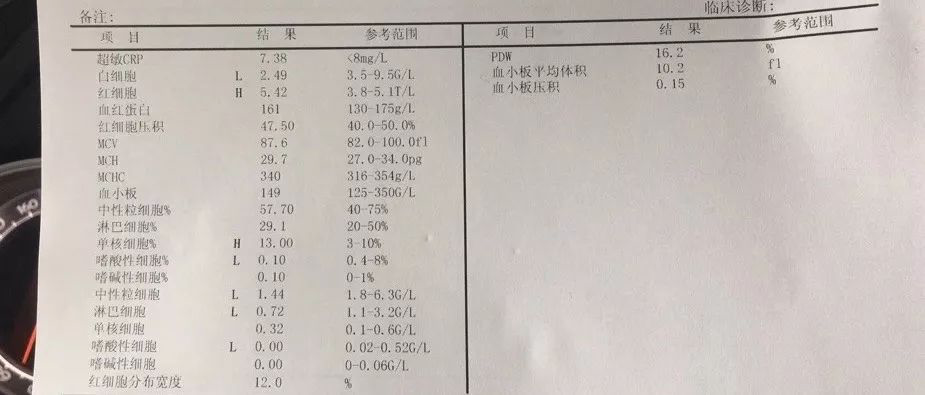
Mr. Guohua’s inspection report.
I showed the doctor my report and explained my specific situation, that I had been feverish for almost three days, and our company had someone diagnosed with viral pneumonia. He then told me that I had viral pneumonia.
At that moment, I panicked and quickly contacted my company’s leader and called my family, telling them that I might have contracted the novel coronavirus pneumonia and decided not to go back to work since I felt that I might infect my parents.
Both patients and doctors were panicked
In the morning, a director was attending to the patients, and his experience should be relatively wealthy. However, in the afternoon, two new doctors came on duty for the first time, and from their reaction, they did not expect things to be severe up to this point.
One of the male doctors diagnosed a patient with viral pneumonia and then went on to see five more patients, including me, and we were all diagnosed with viral pneumonia based on our CT examination reports.
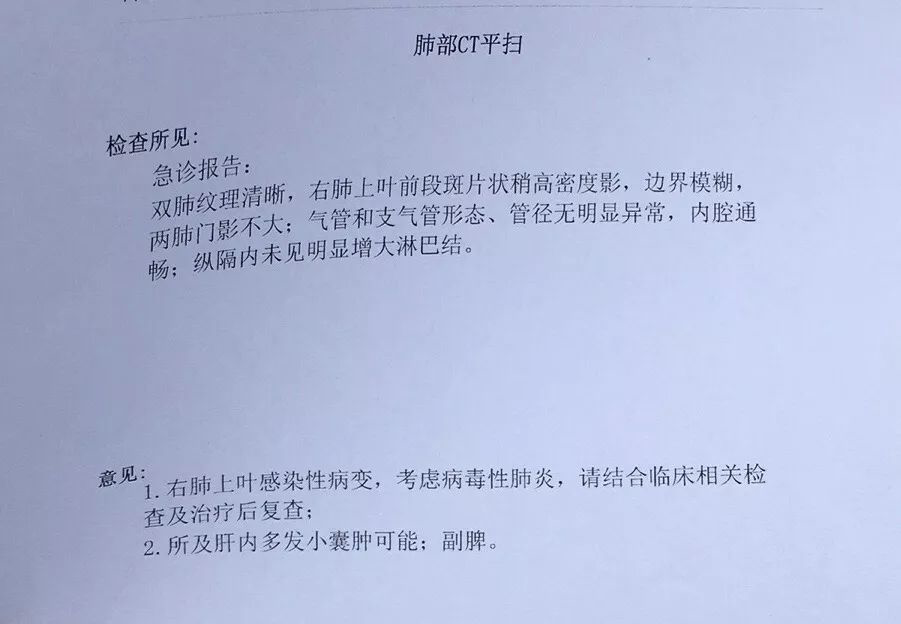
Mr. Guohua’s CT inspection report.
Then that male doctor panicked and did not know what to do, kept asking how it had come to this and how we had been infected by so many people. He also said that there were no specific drugs available, and the hospital was also full, so we could only go back home and wait for national rescue or isolate ourselves at home.
We were also panicking since this meant, to put it bluntly, going home to wait for death because we did not know how dangerous it was, nor its associated complications.
Later, a specialist came over and told them what to do. I saw a note under the glass on the desk where the doctors worked, which roughly stated what to do when encountering patients with specific diseases, listing 1, 2, 3 steps, and so on.
The specialist told them to follow the steps, and to give injections to those who needed them. After that, I felt that those doctors became strong again.He told me that my condition was still okay and not very severe, and asked me to self-isolate and prescribed medication to me. He said that these medicines cannot cure me, but can prevent me from being infected by other viruses.
I told him that I had been running a low fever. He said I did not need to worry about that and it was not recommended for me to take fever-reducing medication. He explained that the fever indicated my body was fighting against the virus and assured me that I should not worry. If the situation worsened, I could come back to see them. He and his team kept comforting me and other patients.
To be honest, I had thought about leaving and returning to my hometown as I had a car to drive. Hospitals in Wuhan were overcrowded, but I could be hospitalized immediately upon arriving home, which would make me have the privilege of being among the first groups of patients to receive medical attention.
But after seeing these doctors and their efforts, I was moved. I saw what they were doing and realized that I could not leave and risk taking the virus back to my hometown and family. I made the firm decision to stay in Wuhan.
The chief expert told two doctors to prescribe levofloxacin hydrochloride injection to us, saying that this medicine could effectively prevent mild patients from becoming severe patients. It was proven to be effective.
He gave me two days’ worth of medication and also prescribed me with oseltamivir phosphate. Oseltamivir phosphate is used to treat SARS or other types of flu. His idea was for me to take one pill daily, to prevent me from catching other types of flu, and take it for ten days.
Later, I went to get an injection. When I got to the infusion room, I found that there were approximately thirty to forty people, and most of them were there to get the same medicine prescribed to me.
The doctors were working non-stop and some nurses had even lost their voices from all the shouting.
The situation at that time in the hospital was not very good, as we all had pretty much the same condition and the patients were all anxious. The fever clinic was temporarily set up and did not have a proper call system. The doctors would take your number and pin it in their hands, and then read aloud one by one, so you had no idea how long you would have to wait. Everyone was waiting around in a cramped space, which increased the likelihood of cross-infection. Everyone wore masks, although some were not effective, they still wore them because the fever clinic would not admit anyone without a mask.I have a deep impression when there was a couple with their daughter, who was probably in her late twenties. The daughter showed symptoms, but the couple did not. I don’t know why, but her father kept trying to jump the queue, claiming that the doctors did not register his appointment, so he kept asking to be let in first.
Then the head nurse arrived and told them that 90% of the people in the fever clinic were infected with pneumonia and they all needed to see a doctor. It was impossible to let anyone jump the queue.
I remember the father being stunned and angry, blaming his wife for insisting on coming and saying in Wuhan dialect, “Didn’t I tell you not to come? Now you’re infected!”
When the head nurse finished speaking, everyone seemed hopeless.
Looking at the doctors, their posture and work condition suggested that they had been working for a long time. The doctors worked non-stop, and the nurses’ voices had become hoarse from calling patients’ names.
The doctors would have some arguments with the patients, because the patients were really anxious and desperate. They didn’t know what was going on and what to do, and some people would speak more aggressively.
One family member of a patient went to see a nurse and said that they had run out of blankets. The nurse said that she did not have any left and that they had to go to the inpatient department to get one. The family member said, “Then you go get it.” But the nurse said, “I have so many patients here, and I am already tired.” The family member responded cruelly, “What about your tiredness? You must deal with this situation.”
I think those doctors were really not easy. They worked continuously and some of the nurses fainted from low blood sugar because they had not eaten anything for a day. They were really hardworking, and I hope everyone could be more understanding and tolerant.
Improvements in my condition
As for how my condition began to improve, let me continue to tell you.
On the morning of the 23rd, I went to the supermarket again and bought a lot of food, including instant chicken soup. Before going out, I put on gloves, an N95 mask, a hooded sweatshirt to cover my head and a disposable tablecloth on top. Afterwards, I called my family because my parents knew some doctors and asked them if they had any recommended medicine.
Those doctors recommended Oseltamivir, Lianhuaqingwen capsules, and antiviral oral liquid, etc. At that time, I bought a lot, and also felt healthy pills. I still have some medicine left, and I also bought alcohol and 84 disinfectant.
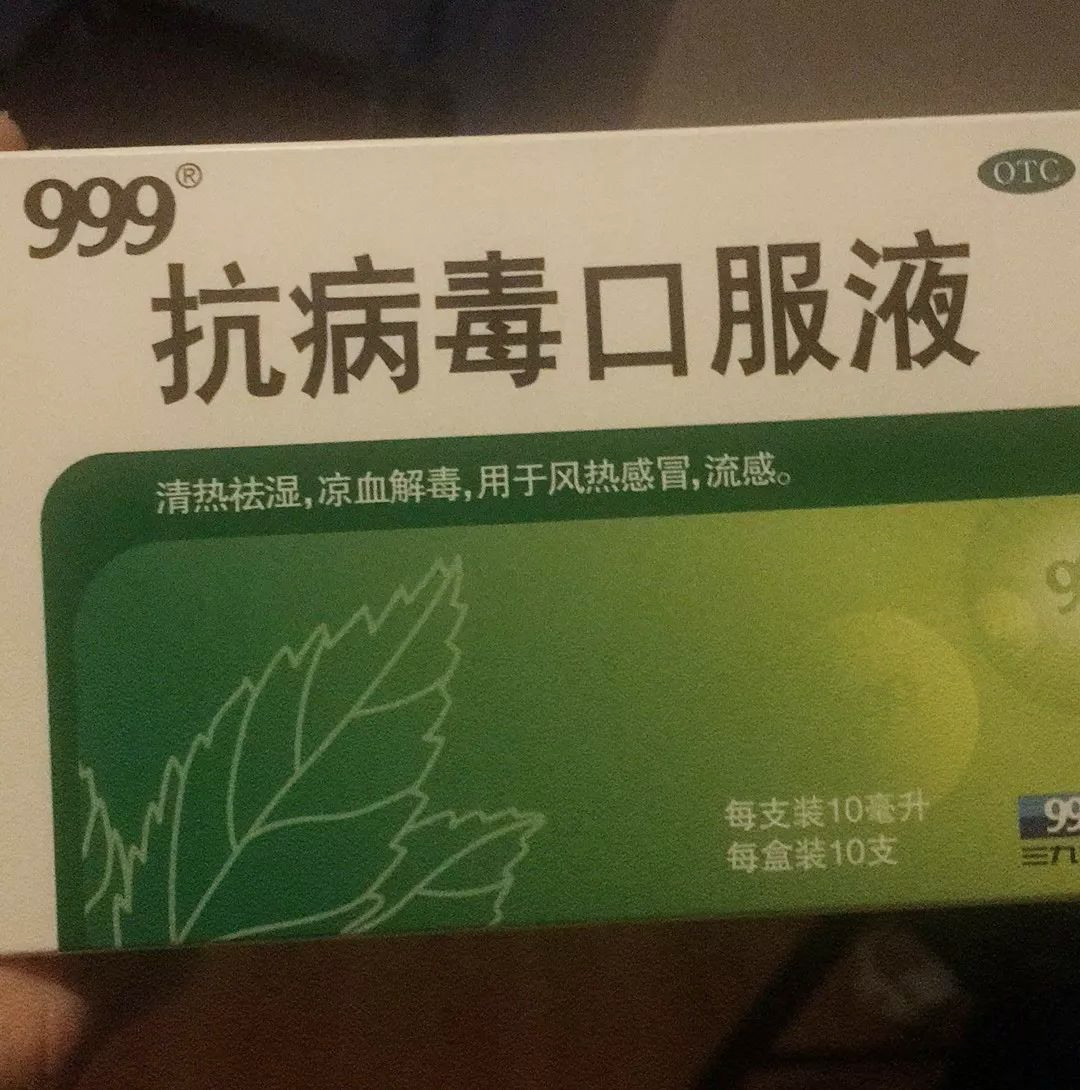
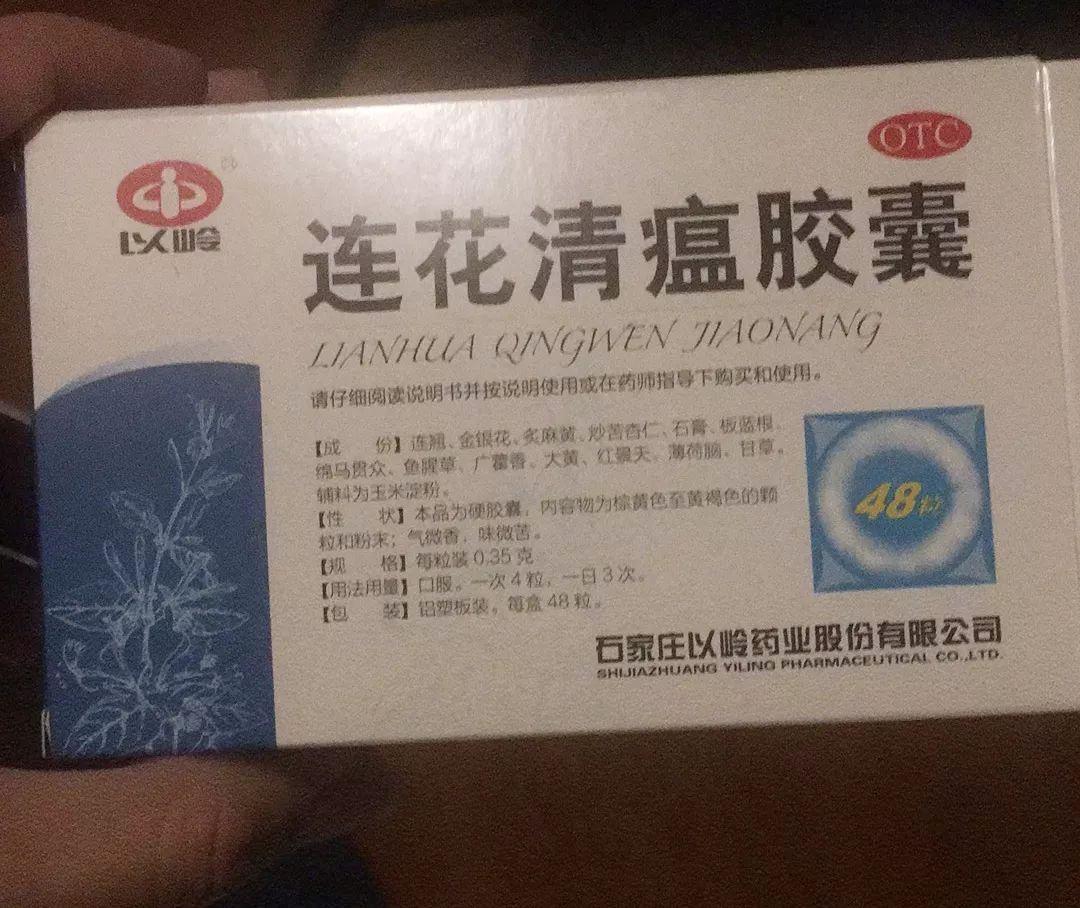
Mr. Guohua’s Medications
I remember that day vividly. I started sweating profusely as soon as I began shopping at the supermarket. By the time I finished carrying things up and down, my clothes were soaked through with sweat. I changed my clothes and went back down to continue carrying. After each trip up, my clothes were wet again. I quickly took a shower and rested for a while before putting on more clothes and continuing.
In the end, I ended up buying a lot of things. At that time, people in our area weren’t yet aware of the severity of the situation. If it had been worse, I don’t think I would have been able to buy medication, as it should have been limited to those in need. However, I was still able to buy a lot of medicine.
On the first day that I went to the supermarket, neither the cashiers nor other people were wearing masks. Even the shoppers weren’t wearing masks. I stood out in the crowd with my own protective gear.
The second time I went to the supermarket, a few people were wearing masks, the usual ones. Then, I went to buy medicine and found that five or six people in the pharmacy were buying masks. However, at that time, they were only able to buy very ordinary masks.
On my third trip to the supermarket, a group of people bought all of the instant noodles (even the boxes) and other condiments in the entire supermarket. The kind that came in buckets was all gone. At that point, I began to feel a sense of panic among the people in the supermarket. There were no vegetables left on the shelves, but the order was good and there was no looting or panic among the shoppers.
After finishing my shopping, I stayed at home. However, I couldn’t remain still. I swept the floor, exercised my legs, and even practiced tai chi. My parents also sent over some exercises which I followed along to.
Then, I started taking medication, constantly drinking water, and drinking large amounts of hot water to make myself sweat. I was very worried about my condition, so I measured my temperature every hour to keep track of it.
The first few days were very difficult because my attention was solely focused on my temperature and drinking water. I sat there drinking water and measuring my temperature, with no distractions. The following is a record of my medication use, and is not authoritative, but for reference only.
- On the evening of the 19th, a low fever was confirmed through temperature measurement
↓
- On the 21st-22nd, I was diagnosed with viral pneumonia (no temperature recorded)
Moxifloxacin injection, 1 bottle/day
Oseltamivir phosphate capsules, 2 pills/day
Lianhua Qingwen capsules, 12 pills/day
999 Antivirus oral liquid, 3 bottles/day
↓
- From the 22nd to the 26th, my temperature was between 37.6-36 degrees Celsius
Oseltamivir phosphate capsules, 2 pills/day
Lianhua Qingwen capsules, 12 pills/day
999 Antivirus oral liquid, 3 bottles/day
Note: Starting on the 25th, there was no more fever, and my temperature was between 36.7-36.2 degrees Celsius.
↓- On the 27th, body temperature (36.6-36.3)
Oseltamivir phosphate 2 tablets/day
Lianhua Qingwen Capsules 12 capsules/day
Antiviral oral solution 2 bottles/day
↓
- On the 28th-29th, body temperature (36.8-35.8)
Oseltamivir phosphate 2 tablets/day
Lianhua Qingwen Capsules 12 capsules/day
Vitamins
↓
- On the 30th, body temperature (36.6-36.2)
Lianhua Qingwen Capsules 12 capsules/day
Vitamins
↓
- On the 31st, body temperature (36.8-35.8)
Lianhua Qingwen Capsules 12 capsules/day
Vitamins
↓
- Feb. 1st-2nd, begin to reduce medication
Body temperature (36.8-35.6)
Lianhua Qingwen Capsules 8 capsules/day
Vitamins
↓
- On Feb. 2nd, body temperature (36.7-36.2)
Body temperature normal, no longer taking medication
Vitamins
On Jan. 24th, my body temperature began to decline, with a maximum temperature of 37.3 degrees. I also made a chart to see if my body temperature curve exceeded 37.3 degrees.
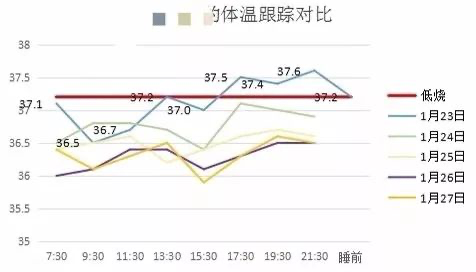
Mr. Guohua’s body temperature record chart Part 1
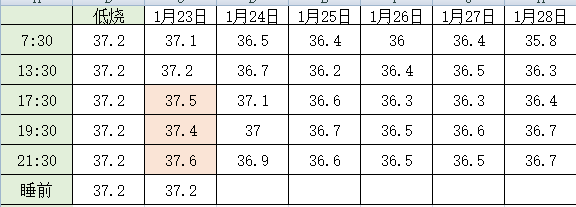
Mr. Guohua’s body temperature record chart Part 2
In the first few days, my condition was quite bad, with fever and diarrhea. However, other than that, there were no other discomfort or breathing difficulties, which was strange. And I was always worried that the condition would worsen.
After that, I continued to take medication, exercise, and drink water. Around the 25th, my body temperature was already under control. I stopped eating junk food and porridge and started cooking some dishes.
And I no longer measured my body temperature as frequently, from measuring every hour to every 2 hours, to now measuring in the morning, afternoon, and evening, about 3 times a day.
On Feb. 2nd, I have stopped taking medication, and my body temperature is now relatively normal. So I think I have passed the test and there is no problem. From my own experience, I believe that mild cases of the illness can be controlled and cured, so everyone should not panic excessively.
Changes outside the window during the illness
Although I have recovered, these days are still very dangerous. I have seen reports saying that even if you have recovered, it is still possible to be infected again.So I have been very cautious and wore the same attire as on the 23rd when I went out on February 1st. That day, I bought a fingertip pulse oximeter because a colleague of mine diagnosed with (COVID-19) was quarantined in the hospital and she told me that blood oxygen saturation is an important indicator. If breathing difficulty occurs, you must go to the hospital.
During this illness period, our community has three doors, and now two of them have been blocked off. You can only go out through one door, and someone will check your temperature with a thermometer when you come back.
The pharmacy in the community has also changed. Before, everyone could go in and choose medicine freely, and then pay at the counter. But now, you can only stand at the door. They put a table between you and them, and ask you what you need. Then you scan the code to pay, and they hand you the medicine.
They do not make contact with you and put the medicine on the table for you to pick up. The prices of the medicine are normal. The pharmacy downstairs has always had masks, but they might not be N95, and they also have ordinary masks.
All the supermarket clerks are wearing masks. When anyone enters the supermarket, they will use a thermometer to check your body temperature, but some people still do not wear masks. The supplies in the supermarket are quite normal.
There is a neighbor in our community who should have a vegetable garden. Sometimes he sends messages in the WeChat group saying that he has harvested some vegetables today, and if anyone wants to buy them, they will deliver them to your door.
There is also a loudspeaker in the community that keeps repeating: the epidemic is preventable and controllable.
Conclusion from Mr. Guohua
I think the prerequisite for avoiding the invasion of the new coronavirus is that you must be healthy. If you are healthy, it is difficult to be infected. For example, there are people in our company who are closer to the infected colleagues, but they are all fine. And those few days, I was really tired and still trying to lose weight, my weight dropped by almost 5 pounds, so I think I was relatively weak, so I was vulnerable to infection.
I think this point is quite important, you must ensure your physical health. In addition, my colleague who was diagnosed also said that you should drink more water, eat light meals, eat more fruits, and go to bed earlier, I think these are very useful.
I am still in isolation, waiting for the day when the epidemic is over.
(Note: Mr. Guohua is a pseudonym and the header image is from pixabay.)
This article is a translation by ChatGPT of a Chinese report from 42HOW. If you have any questions about it, please email bd@42how.com.
